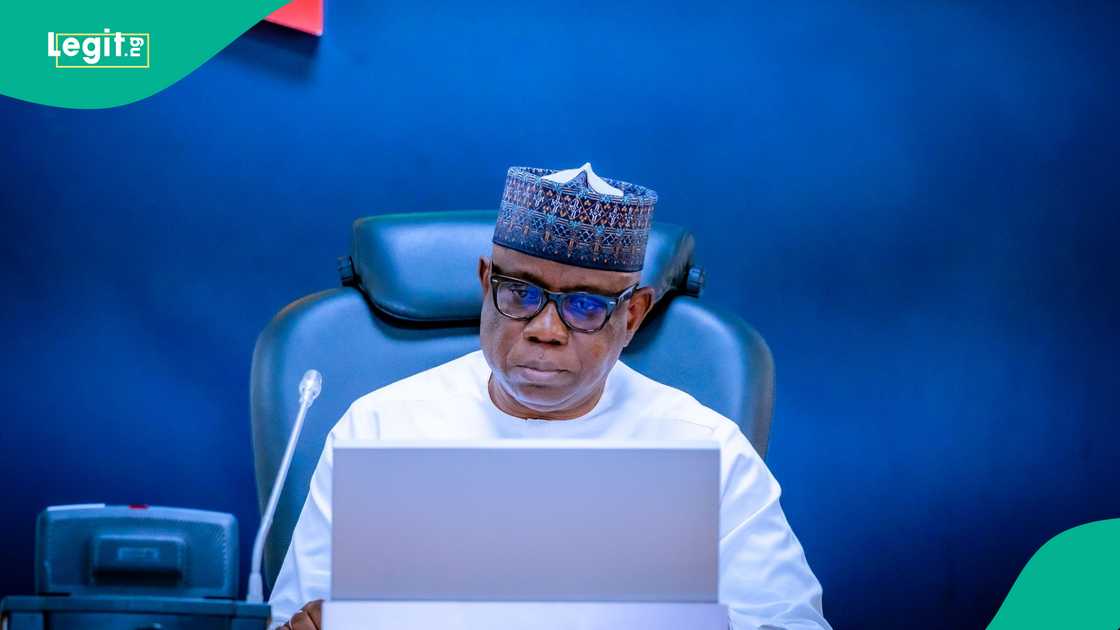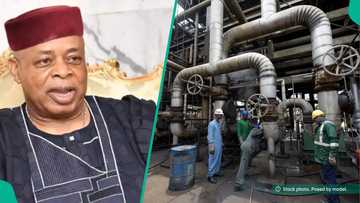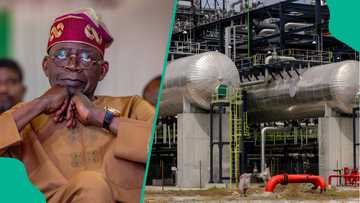Hope in the Balance: FG May Sell NNPC Assets Amid Falling Crude Oil Production
- The Nigerian government is mulling sale of assets belonging to the Nigerian National Petroleum Company Limited (NNPC)
- The Presidency, via the Special Adviser to the President on Energy, Olu Verheijen, disclosed this recently
- The Presidential aide disclosed that the move came as crude oil output has dropped in Nigeria, giving impetus for the asset sale
Pascal Oparada is a journalist with Legit.ng, covering technology, energy, stocks, investment, and the economy for over a decade.
Nigeria’s oil industry may be on the brink of major restructuring as the Federal Government considers selling or partially divesting assets of the Nigerian National Petroleum Company Limited (NNPC).
The move, sources say, could reshape the future of the country’s energy landscape amid falling crude oil output and dwindling investor confidence.

Source: Facebook
The revelation came from the Special Adviser to the President on Energy, Olu Verheijen, during the Nigerian Association of Petroleum Explorationists Conference in Lagos.
She hinted that the Tinubu administration is weighing “performance-based stewardship” as the key to achieving its ambitious target of three million barrels per day.
NNPC under fire for low output
According to a Punch report, Verheijen raised concerns over the NNPC Exploration and Production Limited’s (NEPL) performance, revealing it currently produces only 220,000 barrels per day, less than 10 percent of national output. This, she argued, is far below what is needed to drive Nigeria’s energy ambitions.
Unlike the days when international oil companies (IOCs) shouldered financial and technical burdens, Verheijen said the NNPC’s joint venture partners can no longer carry the weight.
She questioned whether the state-owned firm can fund and execute the large-scale drilling campaigns required to boost output.
“If not,” she said, “we must have the courage to restructure asset ownership and invite credible operators with the financial strength, technical capacity, and governance discipline to deliver results.”
The four R’s: A new framework for Nigeria’s energy future
Verheijen introduced a strategic framework, the “Four R’s”, to guide Nigeria’s oil and gas reform: Reserves, Revenues, Reliability, and Responsibility.
On reserves, she emphasized that exploration cannot remain theoretical. “Exploration is not a PowerPoint slide. It is a risky business.
But risk has a price, and clarity is the discount,” she said, noting that since 2023, the Tinubu government has been restoring transparency to attract investors.

Read also
NUPRC Boss Gbenga Komolafe honoured at UK House of Lords for driving Nigeria’s energy reforms
She warned that Nigeria must act fast, as global capital is shifting toward countries with clearer regulatory and fiscal frameworks.
“Our investors have never had so many choices,” she added, urging urgency in implementing reforms to make Nigeria more competitive.
Unlocking billions in new energy investments
Verheijen highlighted progress already made, disclosing that the government has unlocked over $8 billion in new final investment decisions through major projects such as Ubeta, Bonga North, and HI.
She said another $20 billion could follow soon, with projects moving beyond paperwork to physical development.
According to her, the new agenda focuses on domestic value creation, not just exports, through gas-to-power projects, LPG and CNG expansion, petrochemicals, and local refining aimed at ending Nigeria’s reliance on imported fuel.
Earlier, Verheijen had hinted on the possible sale of Nigeria’s four refineries, stating that the move aims to woo investors into the downstream petroleum sector.
Energy experts are divided over the potential sale of the state-owned refineries, with PENGASSAN kicking against the move.
NNPC chairman promises transformation
NNPC Chairman Ahmadu Kida assured that the company is committed to reform and collaboration. He pledged that within five years, NNPC would become Africa’s most competitive energy company and a source of national pride.
“When people hear NNPC Limited, it should feel like Nigeria scoring a goal against Brazil,” he said passionately. “We will make Nigerians proud of their company.”
As debate continues over the possible sale or restructuring of NNPC assets, the government faces a defining moment.

Source: UGC
The decision could either signal a bold reform to revive Nigeria’s energy sector or ignite fresh controversy over the fate of its most prized national corporation.
FG’s national asset sale sparks outcry
Legit.ng earlier reported that the federal government’s reported plan to sell parts of Nigeria’s national assets, particularly its stakes in Joint Venture (JV) oil operations, has sparked resistance from organised labour.

Read also
New rival for Dangote: meet the people behind 500,000 barrels refinery project in Ondo state
The Nigeria Union of Petroleum and Natural Gas Workers (NUPENG) and the Petroleum and Natural Gas Senior Staff Association of Nigeria (PENGASSAN) have described the proposal as “dangerous” and a threat to the country’s financial stability.
At a press conference in Abuja, Festus Osifo, president of PENGASSAN, said government stakes in JV oil assets currently range between 55% and 60%.
Source: Legit.ng



